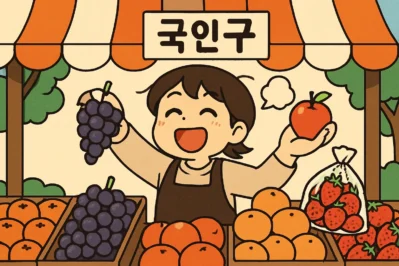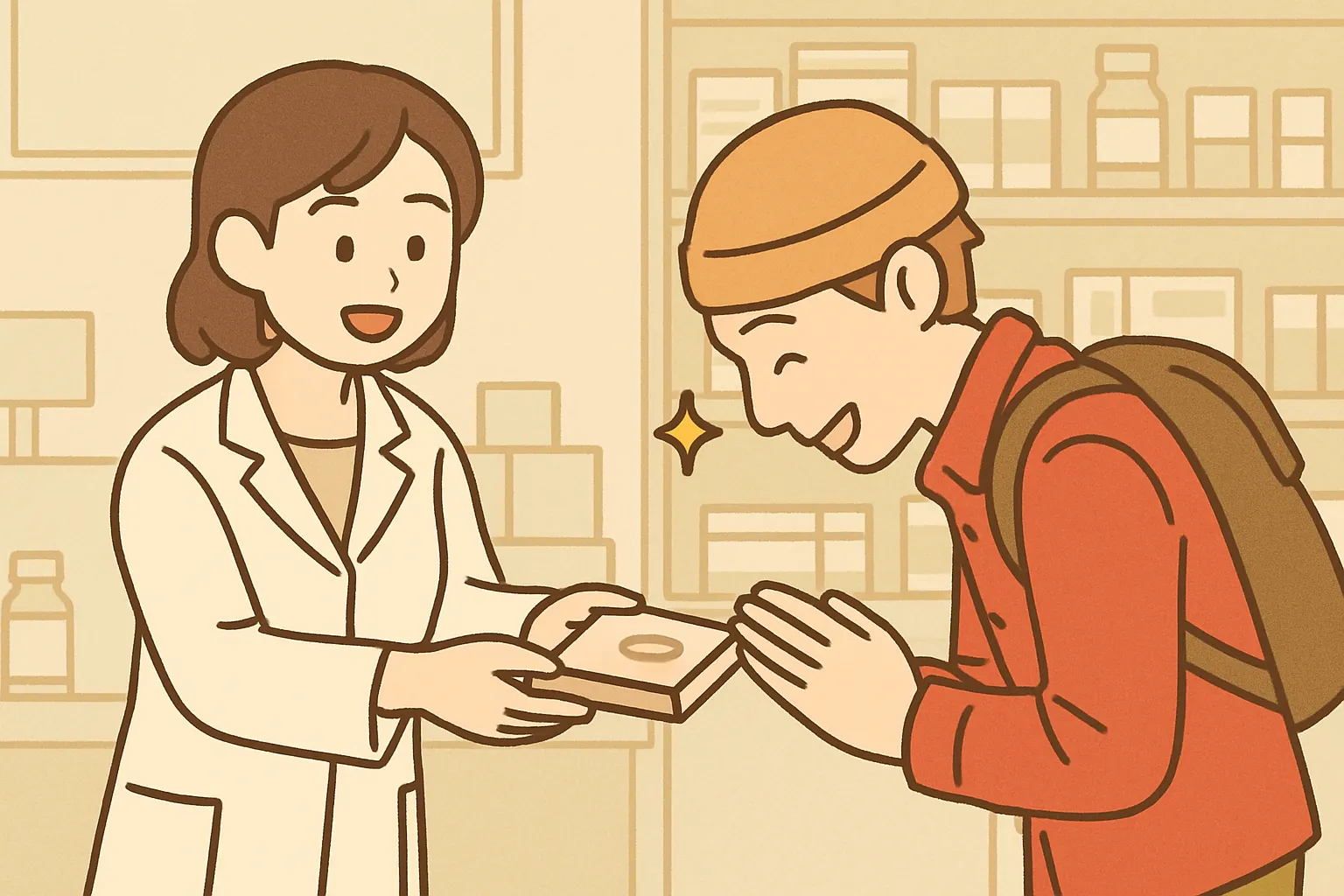Master Korean Counters for Your Tanghulu Haul!
Hello! It’s Maeil Hangeul here to upgrade your Korean!
Have you ever been to a Korean market, pointing at things and using your fingers to say how many you want? It works, but today, we’re going to level up your shopping skills! We’ll learn the special “counter” words Koreans use for different items.
Why is this important? Well, these days in Korea, there’s a huge trend of making Tanghulu (탕후루), the super popular candied fruit skewers you see all over social media. To make the best Tanghulu, you need to buy the freshest fruit, and knowing how to ask for “one bunch of grapes” or “a bag of strawberries” will make you sound like a local! Let’s get started!
Core Expressions for Your Shopping List
Here are the essential counter words you need to know. Remember, in Korean, the structure is [Noun] + [Number] + [Counter Word].
1. ~개 (gae)
- Pronunciation [Romanized]: [gae]
- English Meaning: “thing” / a general counter for items.
- Detailed Explanation: This is your best friend! When you don’t know the specific counter word for something, you can almost always use 개 (gae). It’s used for most individual, countable objects like apples, oranges, chairs, or hats. It’s a casual and very common word.
- Example: 사과 한 개 (sagwa han gae) – one apple
2. ~봉지 (bongji)
- Pronunciation [Romanized]: [bong-ji]
- English Meaning: a bag of…
- Detailed Explanation: Use this counter for things that come in a bag. Think of snacks, chips, mushrooms, or candy that you buy at a supermarket or convenience store.
- Example: 과자 한 봉지 (gwaja han bong-ji) – one bag of snacks
3. ~묶음 (mukkeum)
- Pronunciation [Romanized]: [muk-keum]
- English Meaning: a bundle of… / a bunch of…
- Detailed Explanation: This is for items that are tied or bundled together. It’s most commonly used for vegetables like green onions (파), spinach (시금치), or some types of noodles.
- Example: 파 한 묶음 (pa han muk-keum) – one bundle of green onions
4. ~송이 (songi)
- Pronunciation [Romanized]: [song-i]
- English Meaning: a bunch of… (for grapes or bananas) / a single stalk (for a flower)
- Detailed Explanation: This is a more specific counter! You use 송이 (songi) for a bunch of grapes or a bunch of bananas. Since green grapes (청포도) are a super popular ingredient for Tanghulu, this word is very useful right now!
- Example: 청포도 한 송이 (cheong-po-do han song-i) – one bunch of green grapes
Example Dialogue: Shopping for a Party!
Let’s see how these words are used in a real conversation between two friends, A and B, at a supermarket.
A: 와, 오늘 저녁에 탕후루 파티 진짜 기대된다! (Wow, I’m so excited for the Tanghulu party tonight!)
B: 나도! 우리 간식도 좀 살까? 나는 이 과자 한 봉지 살래. (Me too! Should we buy some other snacks? I’ll get this one bag of snacks.)
A: 좋아! 아, 저녁에 떡볶이도 만들자. 파 한 묶음 필요하겠다. (Sounds good! Oh, let’s make Tteokbokki for dinner, too. We’ll need a bundle of green onions.)
B: 완벽해! 그럼 나는 탕후루 만들 청포도 한 송이랑 내일 아침에 먹을 사과 한 개 살게! (Perfect! Then I’ll buy one bunch of green grapes for the Tanghulu and one apple to eat for breakfast tomorrow!)
Culture Tip: The Great Tanghulu Craze!
If you’re on Korean TikTok or Instagram, you can’t escape Tanghulu (탕후루)! This simple snack of candied fruit on a stick has become a massive trend, especially among younger Koreans (Gen Z).
- Sounding like a Local: When you go to a fruit stand, using the right counter makes a big difference. Saying “청포도 한 송이 주세요, 탕후루 만들게요! (cheong-po-do han song-i juseyo, tanghulu mandeulgeyo!)” which means “One bunch of green grapes, please, I’m going to make Tanghulu!” will surely impress the vendor.
- Market “Service”: Especially in traditional markets (시장 – sijang), when you speak a little Korean and are friendly, the shop owner might give you an extra piece of fruit for free. This is called 서비스 (seobiseu – “service”)! It’s a warm part of Korean market culture.
Let’s Practice!
You did an amazing job today! We learned four essential counter words that will make your shopping experience in Korea so much smoother and more fun.
Now, it’s your turn to try!
- Fill in the blank: You want to buy a bundle of green onions. You should say:
“파 한 ______ 주세요.” - Make a sentence: How would you ask for “one bag of candy (사탕)”?
Leave your answers in the comments below! You can also tell us what you want to buy at a Korean market using one of today’s expressions. Keep up the great work






